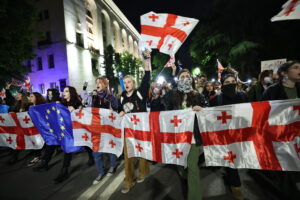

January 2025, Volume 36, Issue 1
The Source of Georgia’s Democratic Resilience
Even as Georgia lurches toward autocracy, the country’s pluralism and democratic culture are deepening. What can Georgia’s contradictory trends reveal about democratic resilience?





